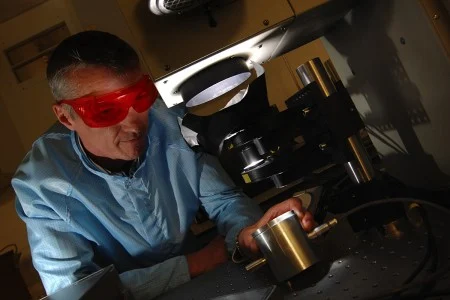New breakthroughs in solar photovoltaic technology could make low-cost solar cells available in an array of consumer electronic equipment.
So says Molecular Solar, a company spun from the University of Warwick, after demonstrating a record voltage for organic photovoltaic (OPV) cells.

Researchers from the company have, for the first time, created cells with open-circuit voltages in excess of 4 volts.
What that means is the highly flexible, low-cost solar cells can now be devolved for commercial uses like electronics that we use everyday.
Organic photovoltaic solar cells use semiconducting plastics instead of the traditional silicon-based cells to produce thin-film solar delivery systems.
Earlier this year, many of these same Warwick-connected researchers reported advances in using gold as an alternative to indium tin oxide in coating organic solar cells.
The company’s director of research, Ross Hatton, termed the Molecular Solar breakthrough “an important advance.”
Organic photovoltaic cells can now provide the electrical energy, in the volts necessary, for recharging lithium ion batteries commonly used in portable consumer electronics, he said.
And it will now be cost-effective to do so. The advantage of the newly discovered high voltage cells is a single cell can be used with no requirement to connect multiple cells in series for these applications, saving manufacturing cost.
Molecular Solar is currently completing a £5 million ($8 million) investment round that will fund the up-scaling of its OPV technology.






